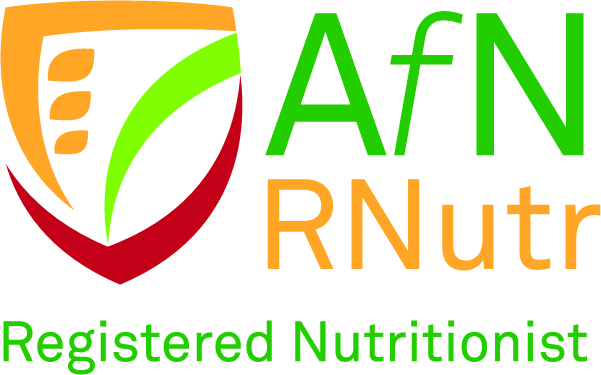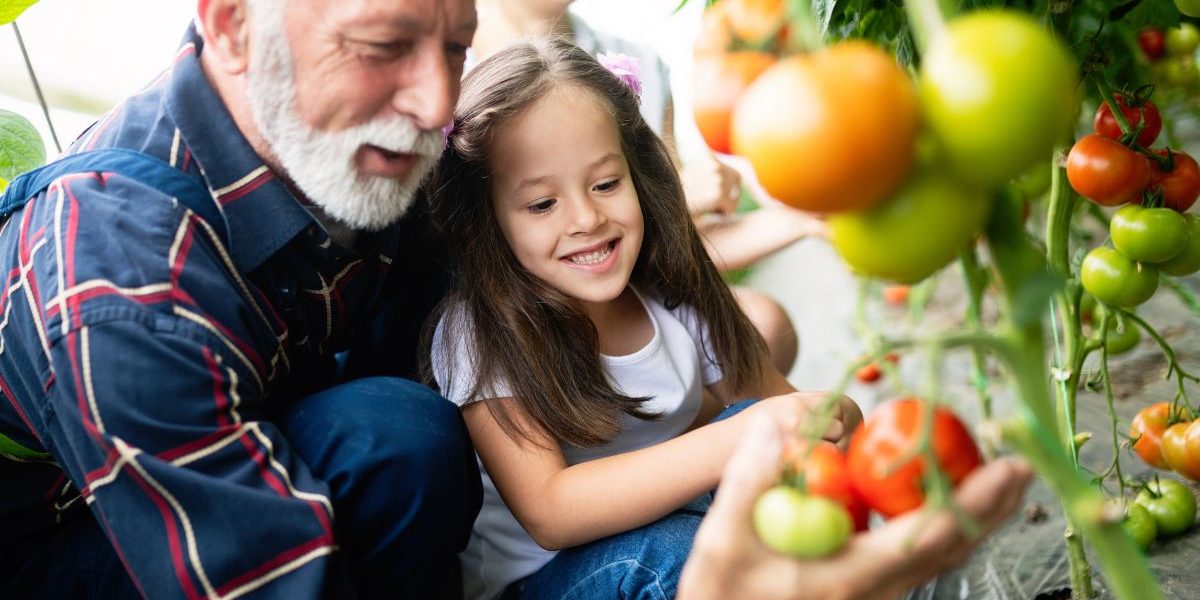Top Tips for Eating Sustainably
Many people think that eating sustainably is difficult or expensive, however, making sustainable food choices can be a lot easier than you think. Whilst we don’t all have to be eco-warriors (though I absolutely applaud you if you put yourself in this category), making small sustainable changes is a fantastic start.
If you want to start making your diet more sustainable, here are my top tips!
Eat seasonally and buy local
Eating seasonally involves eating produce at certain times of the year based on when they are ripe and ready to harvest. That’s why strawberry picking is so popular during the summer – because strawberries are in season from May to August.
Produce that is out of season often requires more resources like water, energy, and transport to grow and transport, leading to a larger carbon footprint, but by eating seasonally and locally, we can support local farmers and reduce food miles.
As an added bonus, knowing what fruit and vegetables are in season could save you money and make your meals more flavourful (that’s why berries always look and taste nicer in the summer!).
To start eating more seasonally, check out my FREE Seasonal Food Calendar. This is my all-in-one seasonal fruit and veg calendar that can help guide your shopping every month, so you can start eating sustainably with ease!
I also have one especially designed with kids in mind – FREE Kids Seasonal Food Calendar.
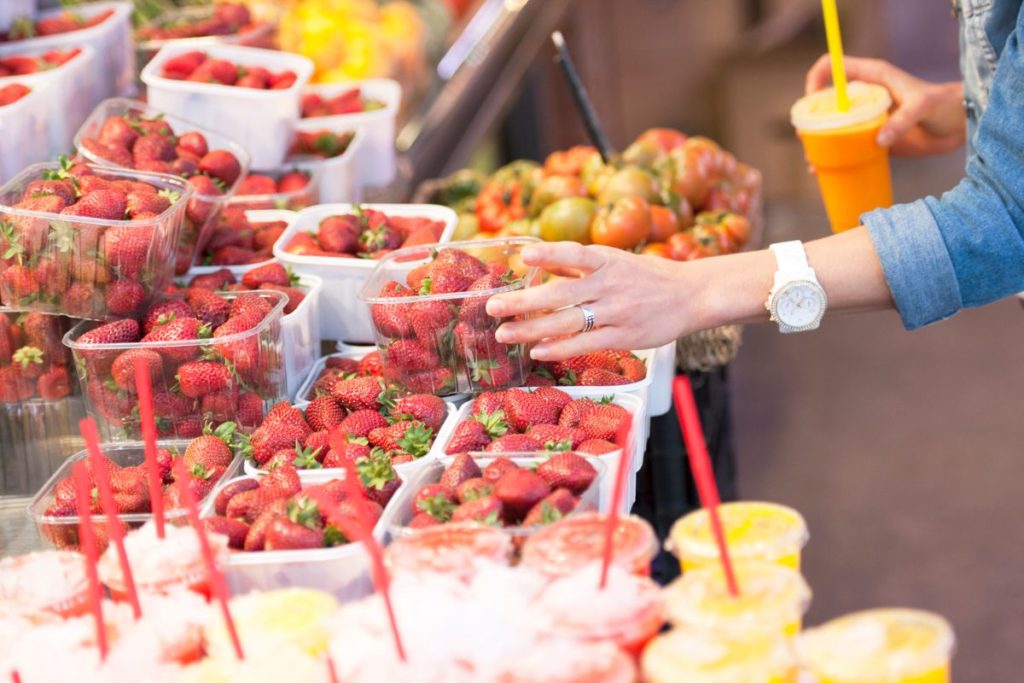
Eat more plants
Research has shown that animal-based food production (such as meat and dairy) results in twice as many greenhouse gas emissions compared to plant-based food production (Xu et al, 2021). So, one way to make your diet more sustainable is to switch out some of your meat and dairy products for plant-based alternatives (such as beans, lentils and soy products).
Plant-based foods are packed full of important nutrients that support our health, and they contain a specific nutrient we should all be eating more of: fibre.
In fact, fibre is only found in plants, so switching out animal-based products for plant-based ones can not only improve the health of the planet but also our own health too.
Plus, plant-based meals are often less expensive, making it a win-win for both the planet and your wallet!
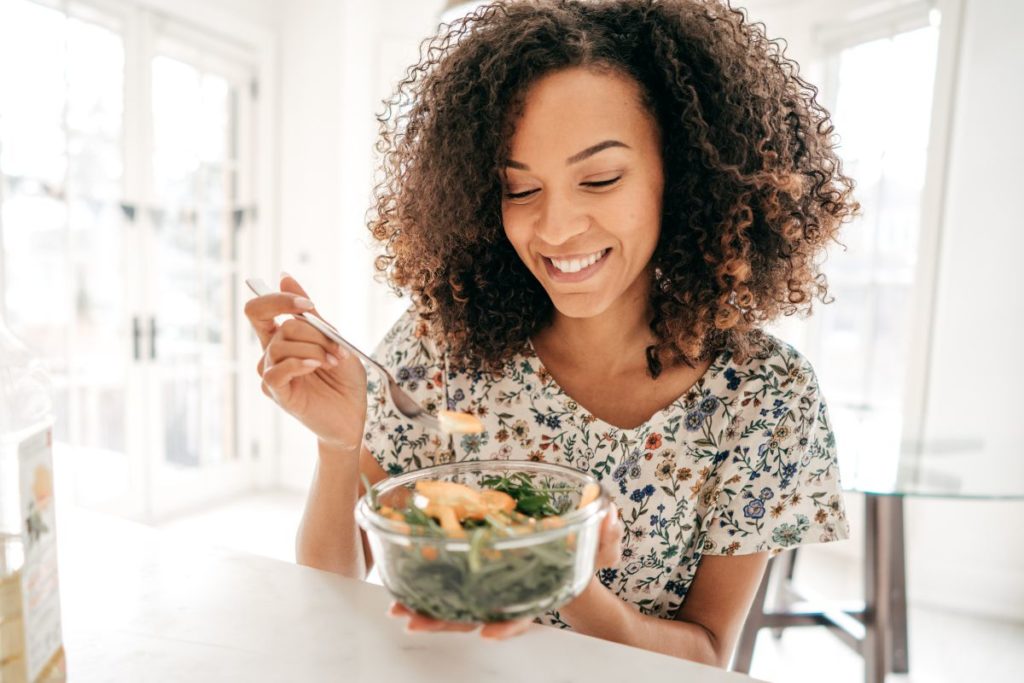
Use reusable cups and bottles
Plastic waste is a significant contributor to pollution, and single-use plastic cups and bottles are a big part of the problem. By carrying a reusable cup and bottle, you can help reduce the amount of plastic waste that ends up in our landfills and oceans.
Look out for water refill stations when you’re out and about or use the refill app to locate shops that will fill up your bottle for free.
Plus, some coffee shops also offer discounts on your coffee if you bring your own reusable cup, so you can save money too!

Buy sustainable fish
Nutritional guidelines recommend that we eat 2 portions of fish a week (1 portion = 140g of cooked fish). This should include 1 oily type, such as mackerel, salmon or sardines, as these are a source of omega 3.
However, we are currently facing an overfishing problem which is causing our oceans to become more and more depleted, so it’s important that we don’t over-consume seafood.
Whilst some people may feel like eating less fish is a good option for them (ensuring that you replace the necessary nutrients in your diet), I appreciate that not everyone wants to do this.
One way to ensure you are eating more sustainable fish is to look out for the Marine Stewardship Council (MSC) and Aquaculture Stewardship Council (ASC) logos on fish packaging and restaurant menus.
But if you’re feeling adventurous, you can also try different varieties of fish that are more sustainable. The Marine Conservation Society have a Good Fish Guide on their website which has a whole list of sustainable seafood choices – so why not give one of these a go?
If you want to learn more, I have a whole post about how to eat fish sustainably.
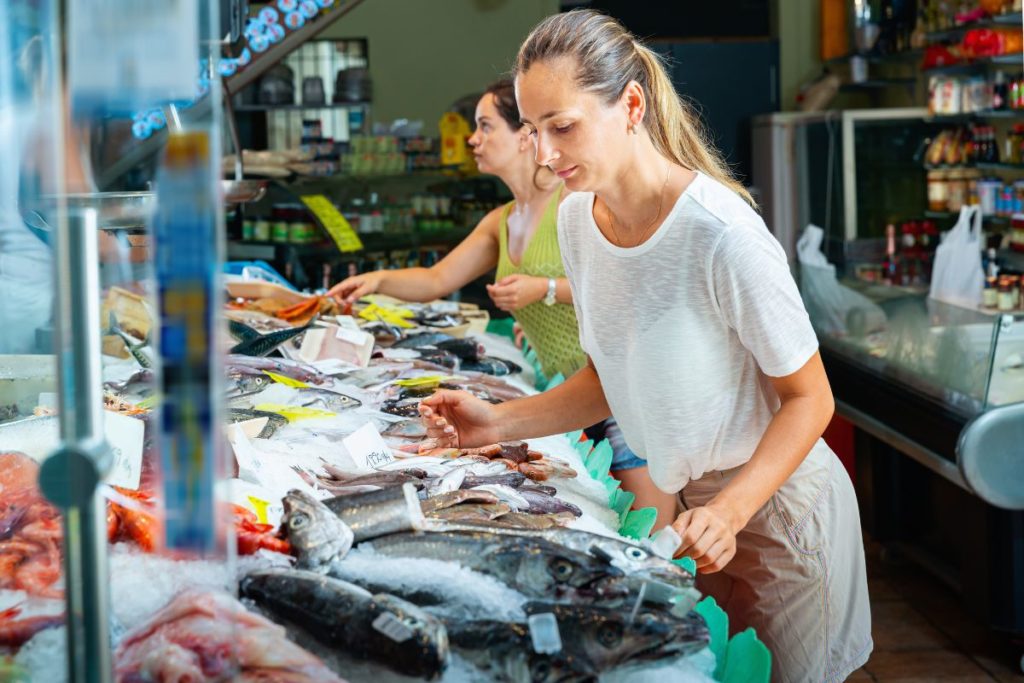
Reduce food waste
Millions of tonnes of edible food go to waste each year in the UK. This is a problem because, not only has the energy and resources that have gone into producing this food been wasted, but when food ends up in landfill it produces harmful greenhouse gasses.
By planning your meals, buying only what you need and using up leftovers, it can be easy to reduce your food waste (and your food costs!)
Other ways you can reduce food waste include:
- Storing food correctly so it lasts longer – I have a whole post on food storage tips here
- Understanding the difference between ‘use by’ and ‘best before’
- Freezing foods and leftovers for another day
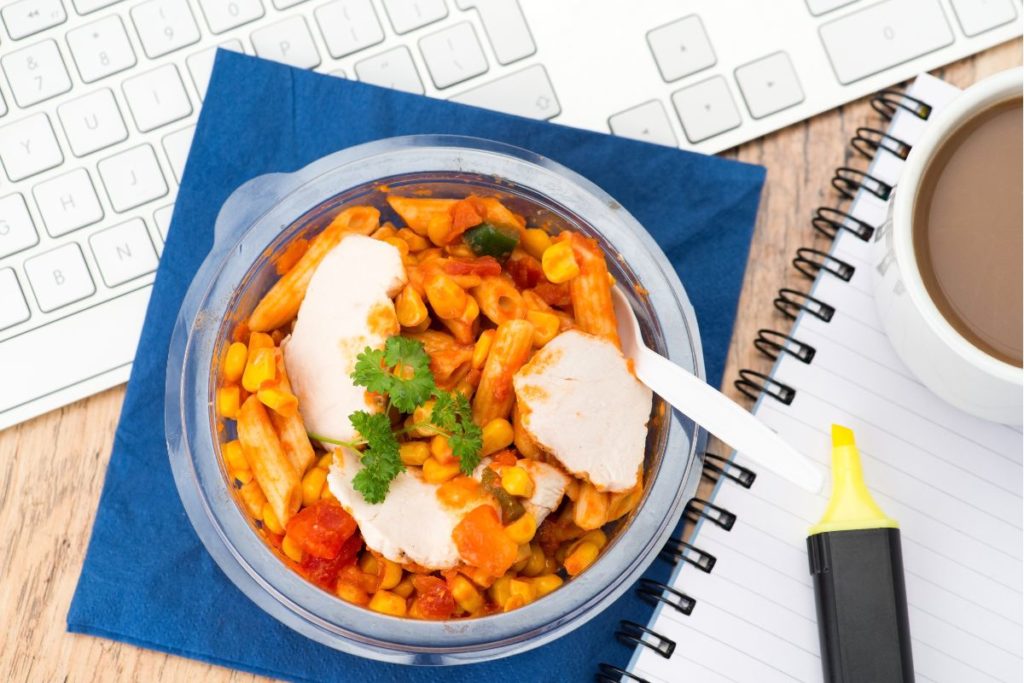
Compost your food waste
What about the food waste we can’t help like fruit and vegetable peelings or eggshells?
The best way to make use of this food waste (so it doesn’t end up in a landfill) is to compost them.
You can get a small kitchen compost bin to collect your food odds and ends, then transfer these to an outdoor compost bin when it’s full.
If you have a garden, this compost will provide nutrients to your plants and save you money on compost in the long run!
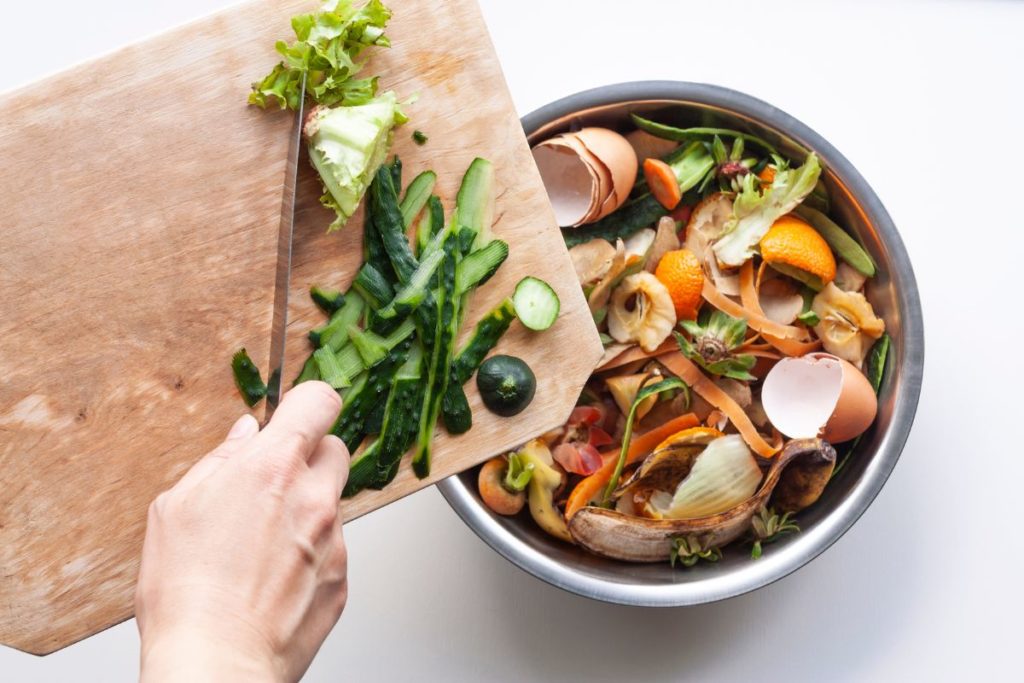
Recycle and reuse
To limit the amount of packaging you throw away, try to buy loose produce or visit a refill shop where possible.
It’s so hard to avoid all packaging but recycle what you can and reuse items such as glass jars and bottles. They make nice candle holders and are great for storing dried foods and leftovers. More and more recycling points are popping up at big supermarkets now, including plastic bag recycling – so make sure to check out what your local store offers.
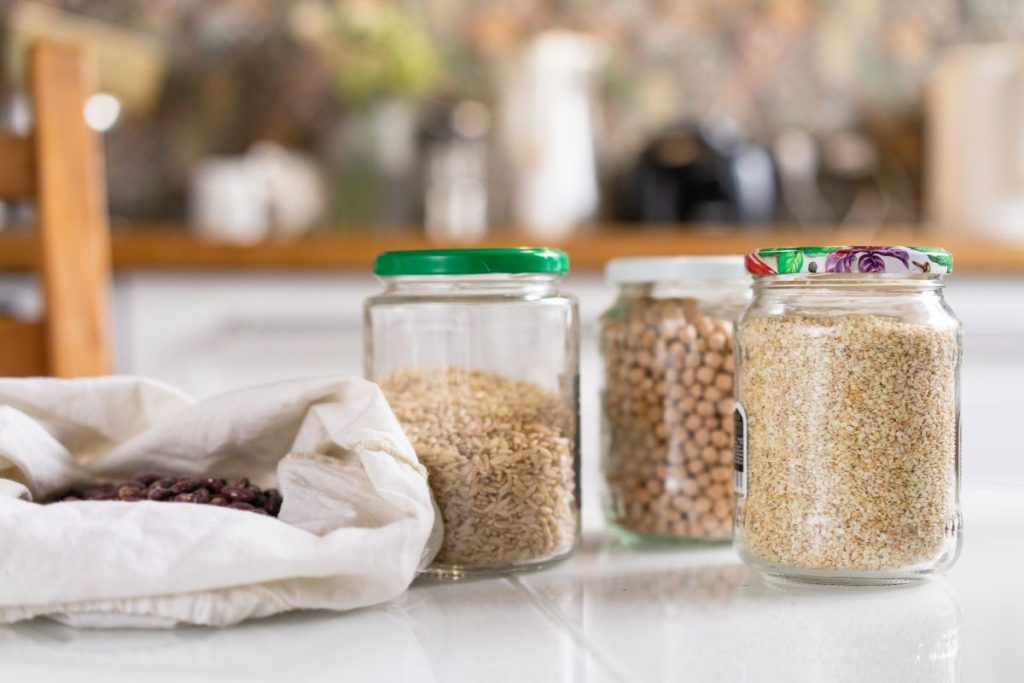
Choose wonky and imperfect fruit and veg
Wonky or imperfect fruits and vegetables are a selection of produce that don’t quite make the cut because of their appearance – but they are perfectly edible! These options are much cheaper than the “perfect” fruit and veg too. Most major supermarkets have their own brand of wonky or imperfect fruit and veg, so keep a look out for these on your next food shop. You can also get selection boxes online delivered to your door and these are reasonably affordable too.
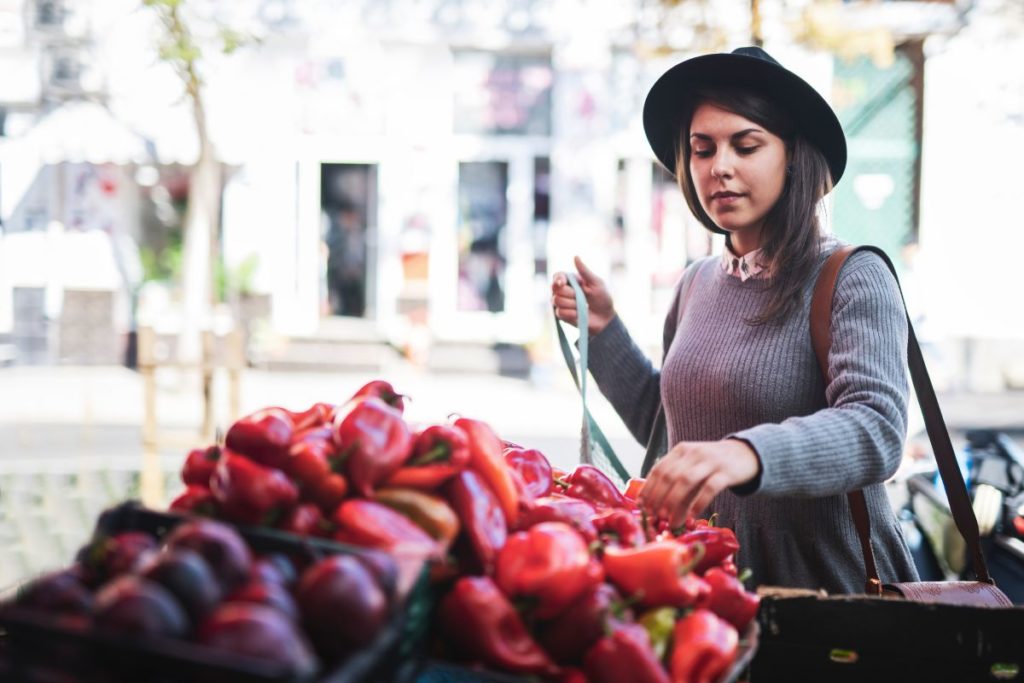
Grow your own
If you have the time to grow your own fruit and veg, it’s not only sustainable but also rewarding to eat something you’ve produced yourself.
And guess what? You don’t need to have lots of space or even a garden! Growing your own herbs is easy and can be done indoors or in a small plot outside.
If you have kids, this is also a fun and educational way to teach them about how food grows and ends up on our plates.
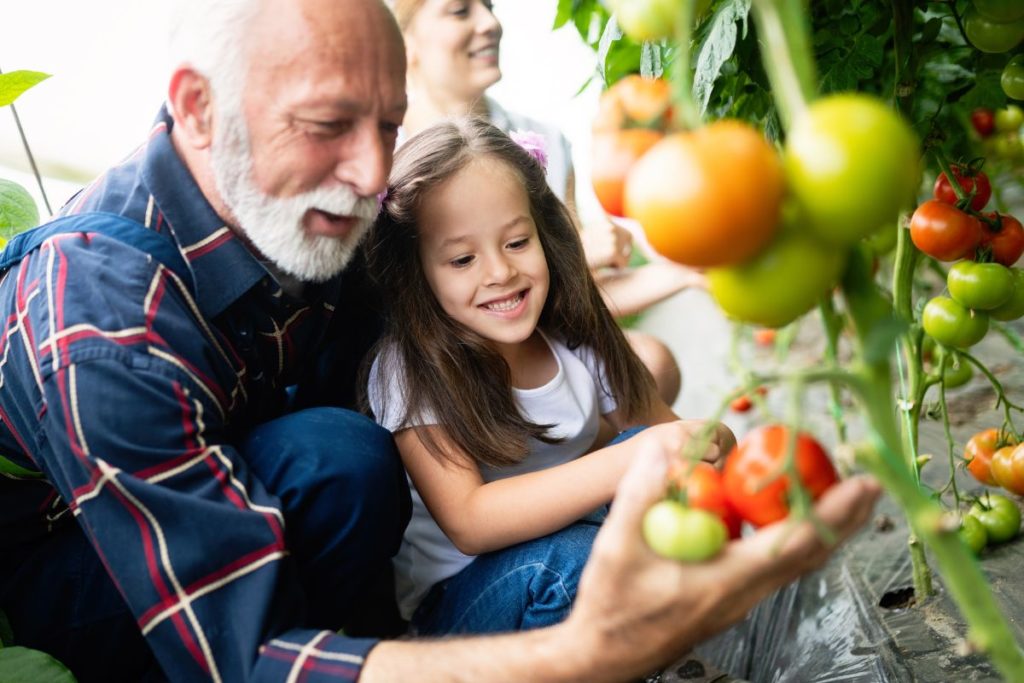
Small changes can make a big difference!
These are just some of the things I try to do, but there are plenty of other fantastic tips out there too.
My advice is to choose a few areas to get started with and add a few more as you go.
Small changes can make a big difference, so make sure to forward this to a friend or family member to help them eat more sustainably too!
References
Xu, X., Sharma, P., Shu, S., Lin, T.S., Ciais, P., Tubiello, F.N., Smith, P., Campbell, N. and Jain, A.K. (2021). Global greenhouse gas emissions from animal-based foods are twice those of plant-based foods. Available at: https://www.nature.com/articles/s43016-021-00358-x
